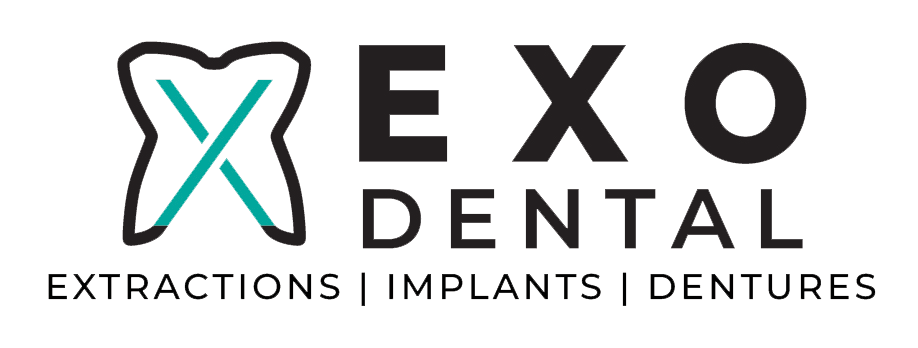Full Dentures vs. Partial Dentures: Choosing the Best Solution
In the world of tooth replacement solutions, dentures have long been a popular choice for restoring function and aesthetics for patients with missing teeth. Available in two primary types—full dentures and partial dentures—these dental prosthetics serve distinct roles in addressing various oral health situations. Full dentures replace an entire arch of missing teeth, offering complete upper or lower tooth replacement, while partial dentures provide a tailored solution for individuals with several adjacent missing teeth. No matter which type of denture is appropriate for a specific case, both options can drastically improve a patient's quality of life by restoring function, speech, and appearance.
At our multi-specialty dental practice, one of our primary goals is to educate our patients about the various treatment options available, empowering them to make well-informed decisions about their dental health.
Join us on our journey to explore the world of denture options and discover how the expert team at our multi-specialty dental practice can guide and support you in finding the ideal solution for your dental needs.
Full Dentures: The Complete Tooth Replacement Solution
Full dentures, also known as complete dentures, are removable dental appliances designed to replace an entire arch of missing teeth in either the upper or lower jaw. They are typically comprised of acrylic materials, with artificial teeth and gum-colored bases custom-made to resemble a patient's natural smile closely. Let's delve into some of the key aspects of full dentures.
Advantages of Full Dentures
There are several benefits associated with full dentures, including the following:
1. Boosted self-confidence: The natural-looking appearance of full dentures can help patients feel confident in social settings, especially if their previous tooth loss caused them to feel self-conscious.
2. Improved speaking and eating capabilities: Full dentures restore functionality, enabling patients to speak more clearly and eat a wider range of foods.
3. Cost-effective: Full dentures are generally more affordable than alternative full-arch tooth replacement options, such as dental implants.
Disadvantages of Full Dentures
Despite their advantages, full dentures do present some drawbacks:
1. Adjustment period: Patients may experience an initial adjustment period during which they need to get accustomed to the feel, fit, and function of their new dentures.
2. Maintenance: Full dentures require daily cleaning and periodic professional adjustments to keep them functioning optimally.
3. Bone loss: As dentures do not stimulate the jawbone like natural teeth, bone loss may occur over time.
Partial Dentures: A Customized Solution for Select Missing Teeth
Partial dentures serve patients who are missing multiple adjacent teeth but still retain some natural teeth in their arch. Consisting of artificial teeth attached to a metal or acrylic framework, partial dentures clip onto the remaining natural teeth for support while filling in the gaps left by tooth loss.
Advantages of Partial Dentures
Partial dentures provide several benefits, including the following:
1. Preservation of natural teeth: By filling the gaps left by missing teeth, partial dentures help maintain the proper alignment of existing teeth and prevent them from shifting.
2. Enhanced function and aesthetics: Like full dentures, partial dentures restore functionality in speech and chewing while improving the patient's overall smile aesthetics.
3. Removable and convenient: Patients can easily remove and clean partial dentures, making them a convenient solution for tooth replacement.
Disadvantages of Partial Dentures
However, partial dentures also come with certain drawbacks:
1. Potential for damage to adjacent teeth: The clasps that secure partial dentures to natural teeth may sometimes cause damage or wear to those teeth over time.
2. Less stable than other options: Although generally secure, partial dentures may not be as stable as other tooth replacement options like dental implants or fixed dental bridges.
Comparing Full and Partial Dentures: Personalized Solutions for Distinct Needs
While both full and partial dentures provide tooth replacement options for patients experiencing tooth loss, each type has its own unique purpose in addressing specific dental scenarios. Several factors, such as the extent of tooth loss and the patient's oral health, should be considered when determining which denture type is the best fit.
Determining the Right Denture Type
Visiting a dental professional for a comprehensive evaluation is the best way to determine the most appropriate denture option based on individual needs. In some cases, alternatives such as dental implants or fixed dental bridges may be recommended as more beneficial long-term solutions for tooth replacement.
Conclusion
Both full and partial dentures can serve as effective tooth replacement options for patients dealing with tooth loss, offering improvements to function, appearance, and overall quality of life. By understanding the unique advantages and drawbacks of each denture type, patients can make informed decisions regarding which solution best suits their individual needs.
Get in touch with the team of experts at Exo Dental today to start your journey towards a beautiful and renewed smile with affordable partial dentures. Our team is dedicated to guiding you through the tooth replacement process and helping you choose the ideal denture solution that fits your budget and needs. Contact us now to learn more about our affordable full and partial dentures and how we can help you achieve a functional and attractive smile.
Don't hesitate to contact Exo Dental in Rogers to discuss your tooth removal and oral surgery options. Hablamos Español.

